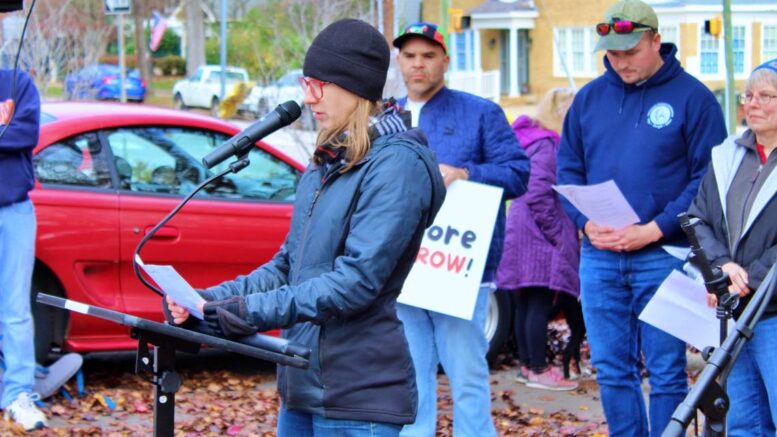My Parents’ Murder
Commentary by Megan Smith
This month, I stood in front of the North Carolina Governor’s Mansion and asked Roy Cooper to remove all 135 people from our state’s death row and commute their death sentences to prison terms. But please don’t think I underestimate the pain that murder causes.
In 2001, my father and stepmother, Terry and Lucy Smith, were brutally murdered by two teenagers in Pennsylvania. As I made this request of Gov. Cooper, I stood arm in arm with other North Carolinians who have felt the pain of homicide. People who had lost beloved children, siblings, mothers and fathers. We are all survivors of senseless crimes that devastated our families.
Yet, none of us wants to see the people who killed our family members strapped to a gurney and killed. None of us wants to see another family plunged into grief. We believe those who commit homicide must be held accountable, but we reject the idea that more killing could ever bring us justice or closure. (Read the letter we sent to Gov. Cooper.)
We were joined at the mansion by close to 200 other North Carolinians, including civil rights leaders, death row exonerees, and representatives of many statewide organizations. All of us are working with the N.C. Coalition for Alternatives to the Death Penalty to call on Gov. Cooper to use his commutation power to clear death row. With a march and rally on December 10, we launched our public campaign.
We are often told that society must continue to seek the death penalty to get justice for the families of victims. In the years since my parents’ murders, I’ve spent a lot of time thinking about what justice means. Certainly, it’s not the same thing as revenge. And it could never be achieved through a death penalty that is inhumane, racist, and prone to errors.
In North Carolina, twelve people have now been exonerated after being sent to death row. All but one of them was a person of color. One of them, Alfred Rivera, who lost his father to murder before being wrongfully sentenced to death, is a member of our survivor group.
To find the true definition of justice, we must reckon with the conditions that create violence and use our resources to build strong, supportive communities that prevent crime before it happens and address trauma after it does. As a middle school teacher, I see every day how far we have to go in creating a safe and healthy world for our children. My students need a society that invests its collective resources in mental health care and other positive social programs, not state-sponsored killing.
One of my parents’ killers is on death row in Pennsylvania. He has been there for nearly two decades. I cannot imagine what good it would do to kill a person who is incarcerated and away from the public. No one would be made safer. I can think of many people who would be harmed by his death, including his innocent family members and the prison workers who would be asked to carry out his execution, but not a single person who would be healed.
On Dec. 13, Oregon’s outgoing governor Kate Brown took the very action we are requesting of Gov. Cooper. She commuted the sentences of everyone on death row to life imprisonment, saying that the death penalty is “an irreversible punishment that does not allow for correction; is wasteful of taxpayer dollars; does not make communities safer; and cannot and never has been administered fairly and equitably.”
Every one of those things is true in North Carolina. And just like Gov. Brown, Gov. Cooper has the power to correct injustice while still assuring accountability—and create a better future for our state.
Megan Smith lives in Asheville. She teaches middle school at ArtSpace Charter School.
Source: charlotteobserver.com, December 22, 2022.

